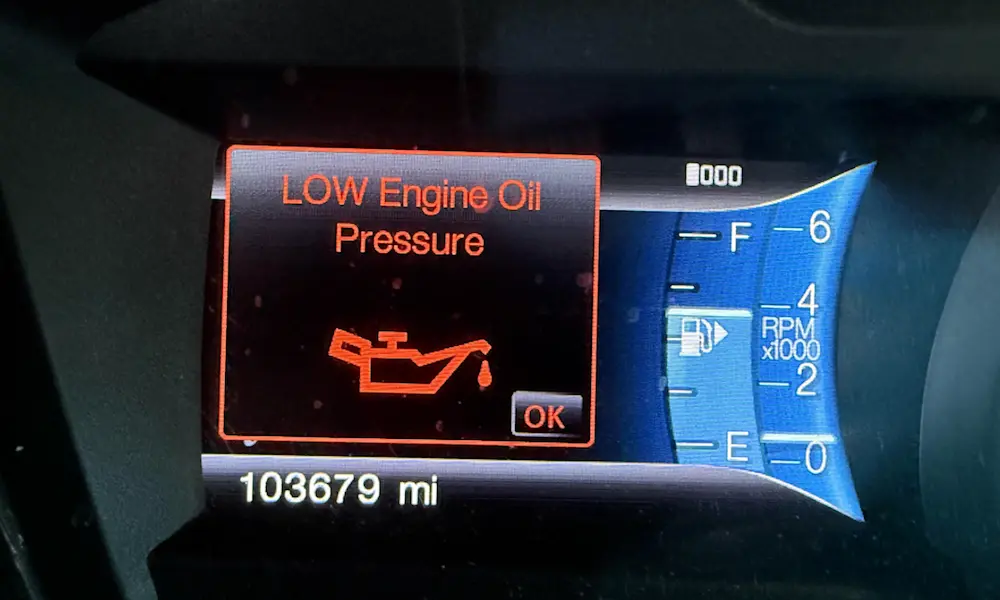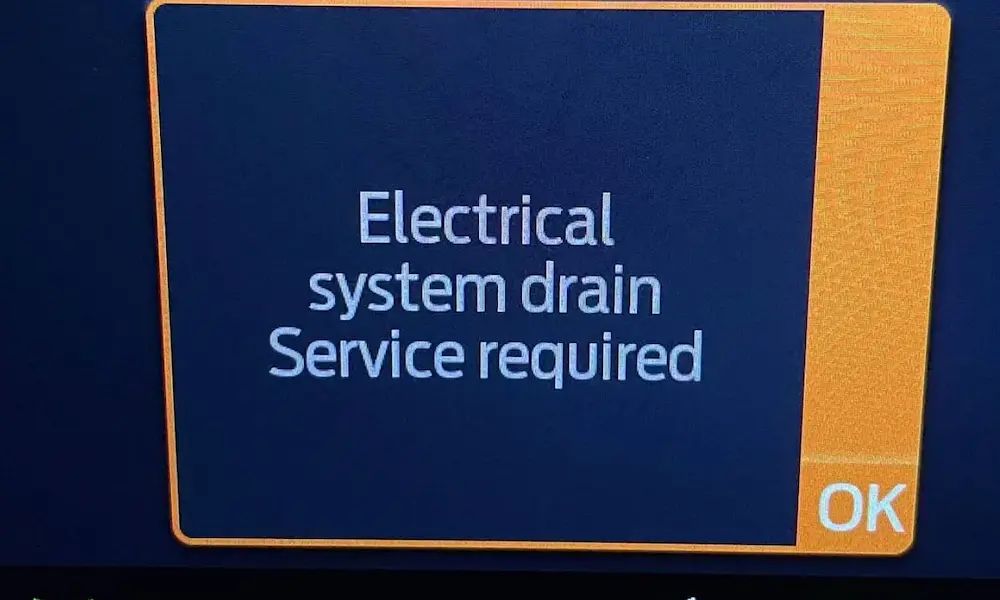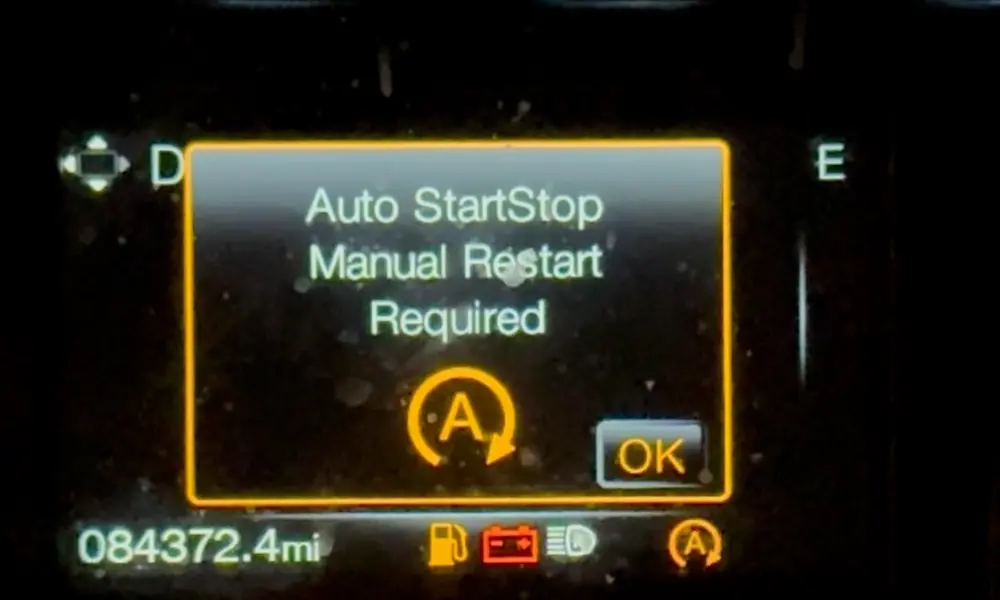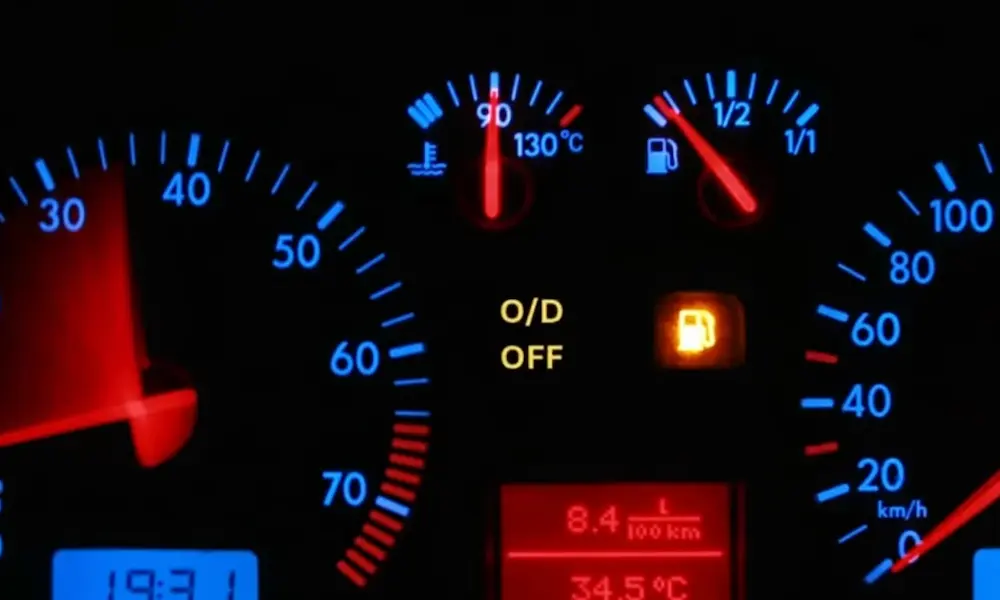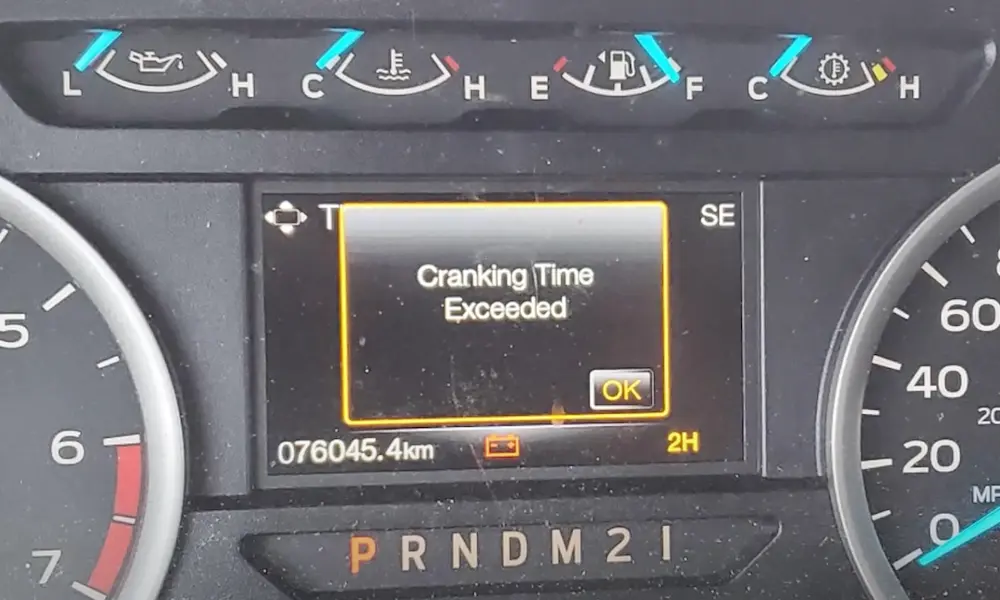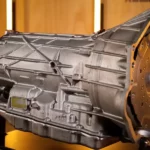Facing issues with your 10R80 transmission can be frustrating, especially when you rely on it for smooth driving experiences. Common problems include solenoid failures and gear slipping, which can affect the performance of your Ford vehicle. Discover solutions and tips that could solve these problems and prevent future headaches. Stick around to learn more about ways to upgrade or maintain your transmission for optimal results.
Overview of the 10R80 Transmission
The 10R80 transmission is a cutting-edge 10-speed automatic system known for its advanced features and widespread use in popular Ford vehicles. Understanding the specifications and applications of this transmission can help you appreciate its impact and versatility in modern vehicles.
10-Speed Automatic Transmission Features
The Ford 10R80 transmission comes with ten forward gears and one reverse gear. It utilizes an electronically controlled system that efficiently handles different driving scenarios. The transmission is built with four planetary gear sets, enhancing the smoothness of gear shifts.
Main Components:
- Main Control Valve Body: Equipped with eight solenoids.
- Torque Converter: Facilitates gear changes by managing fluid flow within the system.
This engineering optimizes performance and ensures a smoother driving experience in various conditions. It helps vehicles maintain better fuel efficiency and offers a more refined ride.
Vehicle Models Using the 10R80
The 10R80 transmission is prominently used in a range of Ford and Lincoln models. You’ll find it in popular vehicles like the Ford F-150, known for its reliability and power. The sporty Ford Mustang features this transmission, offering drivers quick gear changes.
For larger vehicles, the Ford Expedition and Lincoln Navigator also use the 10R80, ensuring seamless performance for these family-friendly SUVs. The Ford Ranger is another model that benefits from this advanced transmission, providing a robust yet smooth driving experience.
These applications highlight the flexibility and broad appeal of the 10R80 across different vehicle types, catering to both everyday drivers and those seeking performance enhancements.
Common Issues and Symptoms
Many Ford 10R80 transmission problems are linked to shifting issues, unusual noises, and overheating. Each of these symptoms affects performance and can make driving difficult or uncomfortable.
Shifting Concerns and Shift Quality
One of the most common complaints is about inconsistent shift quality. You might notice your vehicle’s transmission feels sluggish or hesitates between gears. This is a sign that the gears aren’t engaging smoothly, causing jerky or rough gear changes.
Skipping gears, such as second and fourth, during shifts can also happen. This not only affects how smoothly your ride feels but can also signal deeper transmission issues. Paying attention to these changes can help catch problems early, before they worsen.
Transmission Noises and Gear Position Indicator Errors
Unusual noises, like clunking or grinding sounds, might come from your transmission. These noises usually indicate that parts within the transmission are wearing out or damaged.
Another issue could involve the gear position indicator. If it displays incorrect information or doesn’t match the gear you’re actually in, this could confuse you while driving. This problem is often an early symptom of underlying transmission faults.
Overheating and Coolant Problems
Overheating is another problem that affects the transmission. Heat can significantly impact performance, often reducing the transmission’s lifespan. When excessive heat builds up, it may lead to complete failure in severe cases.
Be aware of any coolant leaking around the transmission area. Coolant issues can cause the system to run hotter than normal. Ensuring your transmission remains at its normal operating temperature is crucial to maintaining performance and avoiding costly repairs.
Pay attention to temperature gauges and address any overheating issues as soon as possible to preserve the health of your vehicle’s transmission.
Technical Aspects of the 10R80 Problems
The 10R80 transmission faces several technical challenges. Key issues include the valve body and TCC regulator valve, pump drive gear and CDF drum, and planetary gear sets with one-way clutch problems. Understanding these aspects will help you better navigate potential repairs.
Valve Body and TCC Regulator Valve Issues
In the 10R80, the valve body plays a critical role in managing hydraulic pressure. When the valve body malfunctions, it often affects the entire transmission system. The TCC (Torque Converter Clutch) regulator valve is central to this issue, as it manages clutch engagement. Problems with this valve can lead to harsh shifts or slipping.
These issues often require valve body replacement. Faulty TCC regulator valves frequently result in trouble codes such as P0741. It’s important to address these promptly to maintain transmission health and avoid further complications.
Pump Drive Gear and CDF Drum Concerns
Another significant area of concern involves the pump drive gear and CDF drum. Pump drive gear failure can lead to inadequate fluid circulation, which reduces lubrication and cooling. This, in turn, can cause overheating and wear on other transmission parts.
The CDF (Center Support Drum) is also crucial. If the CDF drum fails to operate correctly, it results in slipping gears and potential damage. Your vehicle might experience loss of power or unexpected gear shifts. Regular inspection and timely repairs can prevent more serious transmission problems.
Planetary Gear Sets and One-Way Clutch Deficiencies
In the 10R80, planetary gear sets and the one-way clutch are vital for maintaining smooth gear shifts and appropriate gear ratios. Deficiencies in these components can lead to improper shifting or transmission failures. A faulty one-way clutch might cause skipping of gears or failure to hold power in specific gears.
Friction clutches also play a role in this system, and their wear can exacerbate these issues. Keeping an eye on gear shifting behavior can alert you to early signs of these problems. Repairing or replacing these components early can prevent costly overhauls.
Diagnostic Trouble Codes (DTCs) Related to the 10R80
The 10R80 transmission can experience several issues linked to specific Diagnostic Trouble Codes (DTCs). Understanding these codes and the role of Torque Converter Clutch (TCC) control is important for proper maintenance. These subtopics explore how DTCs impact performance and how adaptive learning improves transmission responses.
Interpreting DTCs and TCC Codes
DTCs such as P0741 and P1744 often indicate problems with the 10R80’s torque converter. These codes can suggest issues like a non-flat friction surface, which leads to shuddering during operation. When you receive these codes, it’s crucial to consider the impact on the Torque Converter Clutch (TCC) system.
The TCC system helps manage how the converter engages and disengages. If it isn’t functioning well, you might experience delayed or harsh shifts. Keeping an eye on TCC codes can help you identify if there’s excessive slippage or abnormal engagement, helping you address potential transmission problems early.
Adaptive Learning Drive Cycle
The 10R80 transmission uses an adaptive learning system to improve its shifting strategy over time. This Adaptive Learning Drive Cycle helps optimize gear shifts, making them smoother and more efficient as the transmission learns your driving habits.
If DTCs appear during this learning cycle, it might mean that the transmission is struggling to adapt to changes. Patterns of harsh or delayed shifting could arise because the system aims to fine-tune performance. Regular drive cycles help the transmission adjust, but if issues continue, a detailed check might be necessary to recalibrate settings or address mechanical concerns, ensuring the 10R80 performs optimally.
Repair and Maintenance Strategies
Addressing 10R80 transmission problems involves key strategies like replacing the valve body or rebuilding the transmission. Regular servicing, including fluid and filter changes, can also help maintain performance and extend the life of your transmission.
Valve Body Replacement and Transmission Rebuild
When you experience hard shifting or unpredictable behavior, valve body replacement might be necessary. The valve body is crucial as it directs transmission fluid through the system. If it’s damaged, replacing it can resolve many issues. In some cases, opting for a transmission rebuild may be the best approach, especially when problems are widespread.
A rebuild involves taking apart the transmission, repairing or replacing broken parts, and reassembling it carefully. It’s important to work with a professional, possibly through your local Ford dealer, to ensure the job is done right. They may also update the Powertrain Control Module (PCM) or Transmission Control Module (TCM) to improve performance.
Fluid and Filter Service
Regular fluid and filter servicing is vital for keeping your 10R80 transmission running smoothly. Old or contaminated fluid can lead to issues like overheating or increased wear on components. To prevent these problems, you should schedule routine changes as specified in your vehicle’s manual.
Servicing the transmission involves draining the old fluid, replacing the filter, and refilling it with fresh fluid. This helps in removing debris and maintaining optimal viscosity. Regular servicing may not only extend the life of your transmission but also enhance its performance. Always ensure the correct type of fluid is used and consider discussing any maintenance needs with your service technician.
Recalls and Technical Service Bulletins
If you’re driving a vehicle with a Ford 10-speed transmission, it’s important to be aware of the potential transmission problems that have led to recalls and technical service bulletins. These notifications help you understand the issues faced by different models and the solutions provided to fix them.
Known Recalls for 10R80 Models
So far, there have been no major recalls specifically for the 10R80 models. Ford has managed some issues through technical service bulletins rather than recalls. Recalls usually occur when a safety defect is identified, but with the 10R80, issues are often related to performance, such as shifting problems.
Not having a recall doesn’t mean you shouldn’t remain vigilant. Pay attention to any official communications from Ford or your dealership, as these could offer valuable insights into your vehicle’s performance.
Examining Technical Service Bulletins
Several technical service bulletins have been released for the 10R80 transmission, addressing various transmission problems like harsh engagement or shifting issues. These bulletins guide mechanics on how to correct common issues, often without needing a complete transmission replacement.
For instance, one bulletin addresses a high-pitched whine from the transmission in certain models. Mechanics may need to replace parts like the main control valve body as per another technical service bulletin.
Being aware of these bulletins, you can have meaningful discussions with your service center and stay proactive about maintenance. This ensures your vehicle runs smoothly, saving you time and resources in the long run.
Warranty and Legal Aspects
Navigating warranty issues and understanding legal actions can be important when dealing with the Ford 10R80 transmission. Knowing your rights and the available options can help in addressing any concerns or problems.
Warranty Coverage for the 10R80
If you own a vehicle with the 10R80 transmission, it’s crucial to explore your warranty options. The Ford ExtraCare warranty often extends coverage up to 100,000 miles. This warranty may cover specific transmission issues, including hard shifts or gear skipping.
Stay vigilant about your truck’s performance. If you experience issues, visit a Ford dealer for inspection. Even if coverage is denied, remembering that a record of complaints can be beneficial for future claims is essential. Keeping documentation of any issues and warranty claims can help resolve disputes more efficiently.
Class Action Lawsuits and Consumer Rights
For those facing persistent issues with the 10R80, legal action is an option. A class action lawsuit was filed by 2017-2020 Ford F-150 owners regarding transmission defects. If your vehicle shows similar problems, you might be eligible to join.
Knowing your consumer rights can empower you against manufacturing defects. If you experience problems like skipping gears on a 3.5L EcoBoost, consider becoming a plaintiff to strengthen your case. Consult legal advice to understand how these lawsuits work and the potential outcomes for your situation.



